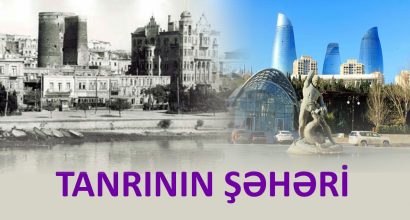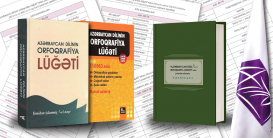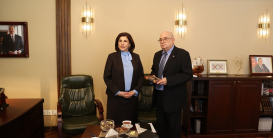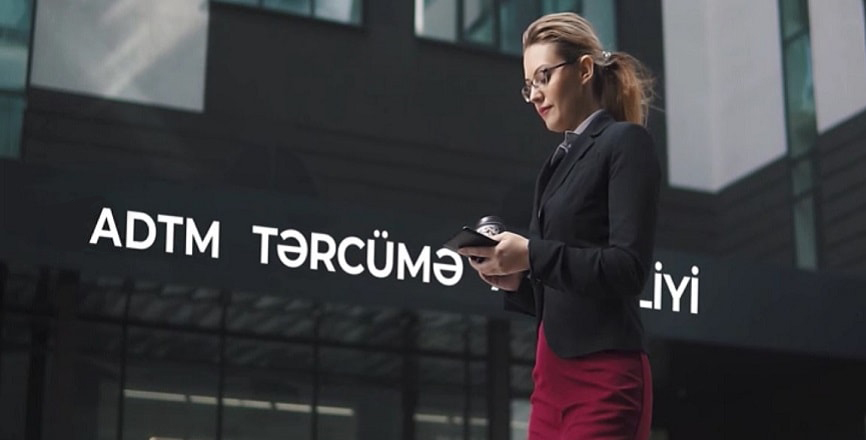God's Town

Baku was founded in V century AD. Starting from the 13th century AD the name of Baku begins to appear in mediaeval European Sources. Baku - the capital of Azerbaijan was the centre of the Shirvanshahs, the Baku Khanate and Baku province of Russia.
The oldest construction in Baku that had reached our time is the foundation part of the Maiden Tower. In XV, century the Shirvanshahs moved their palace from Shamakhi to Baku and since that time, a new area had started in the life of the ancient part of the city – Gala. Development of the oil industry in the Absheron Peninsula in XVX century revived the social and cultural life in the city. Investments made by millionaires, including Emmanuel Nobel, Haji Zeynalabdin Taghiyev, Musa Naghıyev, Murtuza Mukhtarov, Shamsi Asadullayev and others speeded up the economic development of the city, new buildings and complexes were erected. Under the orders of philanthropists too many schools, hospitals and residential units were constructed in the cities of Azerbaijan.
There are various viewpoints on the etymology of Baku. A folk etymology explains the name as deriving from Baghkuy, meaning "God's town". Baga and kuy (بادکوبه) are the Old Persian words for "god" and "town" respectively. In another Persian source, the etymology of the name of Baku is derived from the Persian name of the city Bād-kube ( باد-کوبه), meaning "Wind-pounded city."
The archeological findings found out in the Absheron peninsula proved these areas’ ancient history. In Pirallahy, around the Zigh lake, Shuvalan, Binagadi, Amirjan and other places archeological monuments related to III-I centuries BC were discovered. Some researchers identify Baku with Gaytara (Gangara), Albana, Baruka, etc. The Sasani treasure of V-VII century found in Baku proves that people settled in this area then. Historically, Baku was one of the biggest cities in the East. Oil and salt production were main fields in the city’s economy. According to Aby Dulaf (X century), income from the two oil deposits in Baku was almost equal to 720 000 dirham a year. Development of the federal relations, trade and handcraft laid the groundwork for the prosperity of the city. Baku was essential for trade among Eastern and Western countries due to its location: it was at the crossroad of world trade. Byzantine, Slavic, Chinese, Iraq, Syrian Italian, Venice, Iran, Indian merchants travelled to Baku.
The Old City of Icheri Sheher occupies 22 hectares in the center of Baku. It hosts over 50 historical and architectural monuments from various eras. The Palace of Shirvanshakhs, the Maiden Tower and Synyg Gala (The Broken Tower) are among the monuments which survived till present day.
Sevinj Fadai
AND OTHER...
-
 Movlud Movlud’s Short Story on Turkish Portals
Movlud Movlud’s Short Story on Turkish Portals
“Detayhaberler.com”, “Dibace.net” and “Haber.232.com”, leading Turkish portals, have posted in Turkish the short story “We Have Already Grown Up” by the...
-
 The Book “The Classification of Words Extracted from “The Spelling Dictionary of the Azerbaijani Language” Out
The Book “The Classification of Words Extracted from “The Spelling Dictionary of the Azerbaijani Language” Out
The Azerbaijan State Translation Centre has published a voluminous book “The Classification of Words Extracted from “The Spelling Dictionary of the Azerbaijani Language”
-
 Ambassador Carlos Enrique Valdes de la Concepcion: A New Stage in Azerbaijani-Cuban Literary Relations Begins
Ambassador Carlos Enrique Valdes de la Concepcion: A New Stage in Azerbaijani-Cuban Literary Relations Begins
On April 03, 2024, the Ambassador Extraordinary and Plenipotentiary of the Republic of Cuba to Azerbaijan, Carlos Enrique Valdes de la Concepcion, visited the State Translation Centre.









